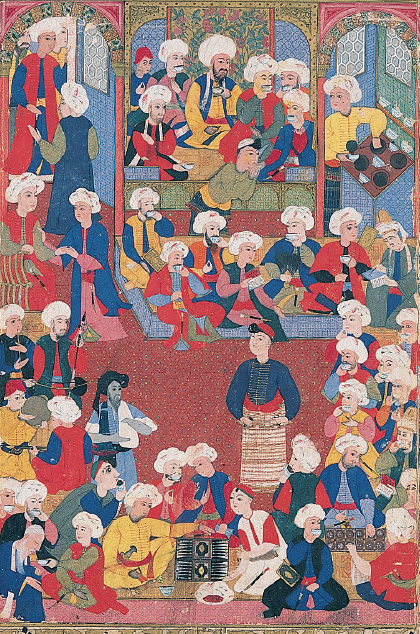Understanding World Societies:
Printed Page 498
Coffeehouses and Their Social Impact

This sixteenth-
In the mid-
Coffeehouses provided a place for conversation and male sociability; there a man could entertain his friends cheaply and more informally than at home. But coffeehouses encountered religious and governmental opposition, as some authorities saw them as a threat to public morality. On the other hand, the coffee trade was a major source of profit that local notables sought to control.
Although debate over the morality of coffeehouses continued through the sixteenth century, their eventual acceptance represented a revolution in Islamic life: socializing was no longer confined to the home. In the seventeenth century coffee and coffeehouses spread to Europe.
Principle Arguments Against Coffeehouses:
- Because of its composition, coffee is intoxicating, making it analogous to wine, prohibited to Muslims
- Coffee drinking was an innovation and therefore a violation of Islamic law
- Coffeehouses encouraged political discussions, facilitating sedition
- Coffeehouses attracted unemployed soldiers and other low types, encouraging immoral behavior, such as gambling, using drugs, and soliciting prostitutes
- Music at coffeehouses encouraged debauchery
>QUICK REVIEW
What factors facilitated cultural exchange between the Islamic empires?